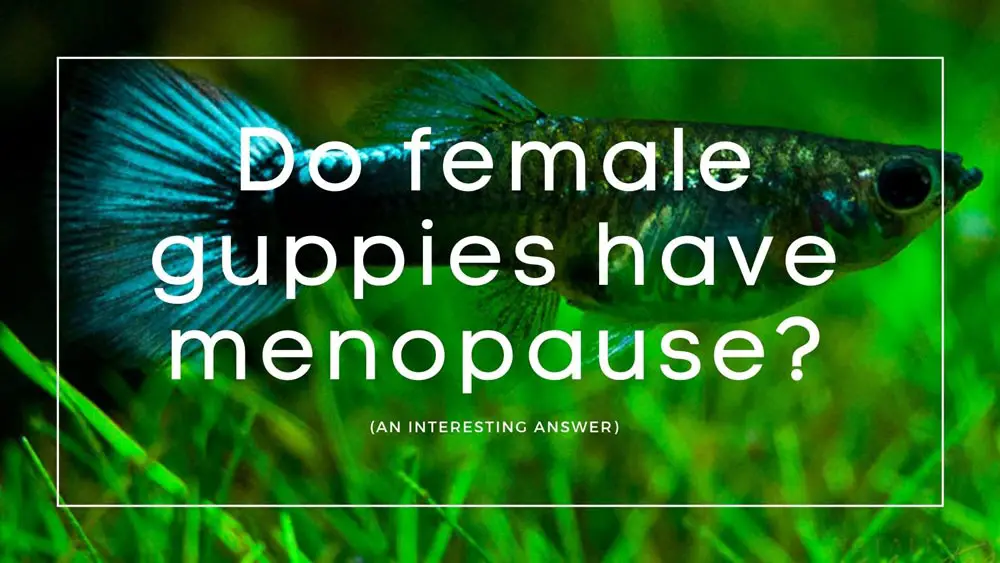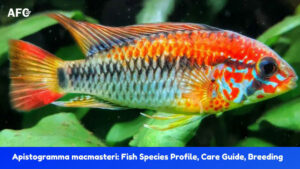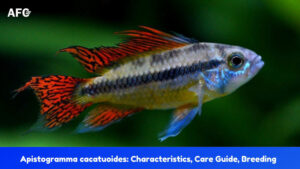When we think about guppies, menopause probably isn’t one of our initial thoughts. However, as a recent study indicated, female guppies do indeed experience menopause. This means there is more to their life than simply breeding and having babies. In general, as we have learned through studies just like the one mentioned, there is more to guppies than many people realize.
From the fact that female guppies experience menopause exactly as human females do, many compelling questions are beginning to emerge.
For example, why are some female animals continuing on past their optimal fertility years?
What Exactly Is Menopause?
Before we get deeper into the female guppy and menopause, let’s go over a brief definition of menopause.
Menopause refers to the natural leveling out of reproductive hormones in many female animals. This leveling out eventually gives way to decline. In the United States alone, more than 2 million new cases are diagnosed every year. Vaginal dryness, mood swings, and hot flashes are the most common symptoms. Various treatment options can be utilized, and most females who experience menopause do so without significant change to their lives. This thought extends to guppies. For any species, menopause marks the end of one’s reproductive years.
Symptoms generally lessen and/or disappear after four or five years.
What Does All Of This Mean For Guppies?
Guppies have always been grouped as animals whose purpose is fulfilled, once they have successfully extended their species. However, with this recent study showing us that the females go through menopause, this grouping no longer applies. Menstruation is a process which, among other things, tells us an animal, including humans, does not exist solely to breed.
Evolutionary theories aside, it is clear that female guppies have a role to play in their ecosystem, beyond the value of reproduction. This role can be potentially realized in several ways.
What Roles Do Guppies Fill Beyond Menopause?
This is where things can get interesting. If we believe that virtually everything in nature has a purpose, at any given stage of its lifespan, then it’s tempting to assume female guppies continue to be useful after their prime years of reproduction.
The notion of older female guppies acting as protectors for younger guppies is one theory that has been put forward. Many believe they have witnessed this behavior in action. Simply put, the older females are bigger, more easily visible, and are generally faster than their more youthful counterparts. All of these traits could be beneficial in the ecosystem of the guppy.
Keep in mind that this is just one possibility of many. Some believe female guppies simply exist after their reproductive years have passed, regardless of whether or not they have anything to contribute to the ecosystem.
This is something that will certainly require more study. Remember, this study was only released just fifteen years ago. That may sound like a lot of time, but studies such as these often demand a good deal of patience. Furthermore, there remains a sizable portion of individuals who are completely unaware that menopause occurs within female guppies.
What Happens To Female Guppies When They Enter Menopause?
If you do some research on guppies beyond this article, you will find a number of interesting anecdotes and facts about how they age. Particularly with the females, it has been said that you can always tell when they become menopausal. This, they say, is due to the older female guppy becoming fatter over time.
That is not altogether accurate. Yes, female guppies during menopause become bigger, but that doesn’t necessarily translate to becoming fatter. Many seem to become longer, as opposed to fatter. However, a certain amount of weight gain can still occur. It just doesn’t seem to be focused on the belly.
On average, guppies reproduce at a pace of roughly one litter every thirty days. This translates to approximately twenty litters of anywhere between thirty and fifty baby guppies. Beyond the astonishing fact that female guppies can have as many as one thousand babies in their lifespan, there does seem to a point in which this pace dramatically slows down. Older female guppies produce less as they approach menopause, compared to when they were younger. By a certain age, they seem to stop having babies altogether.
Yet they continue on.
A Few More Fascinating Facts About Guppies And Menopause
The 2005 study we cited at the top of this article has a few more fascinating elements to ponder.
A study conducted prior to the 2005 study showed the following: Guppies from areas with comparatively more predators than other guppies not only lived for a longer period time, but they also tend to start reproducing at a younger age, compared to guppies that lived in less risky areas. It was the mission of the 2005 study to figure out why this was occurring in the first place.
By the time the 2005 study had been completed, researchers were able to make a number of interesting predictions:
- Female guppies do NOT provide maternal care to their babies, once they have given birth. The theory remains that female guppies can provide protection to younger guppies from predators, but this not a fully established proven concept, as we mentioned earlier.
- “Fitness” is the term used by scientists to describe the ability of an animal to reproduce. From this specific perspective, researchers are still not clear on why female guppies continue to live after their reproductive years have concluded.
There is a theory that this is simply because the female guppy breaks down in different stages.
Conclusion: What We Definitively Know About Female Guppies And Menopause
By the way, the notion of older female guppies providing protection to younger females is known as the “grandmother effect.” The only species in which this behavior has been definitively found is in humans.
What we know for certain is that because female guppies continue to live full lives after their breeding years, their lives are not defined by natural selection. In other words, a guppy does not need to specific and constant biological function to justify its existence.
Pretty thought-provoking stuff!





